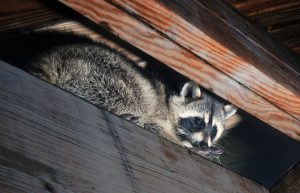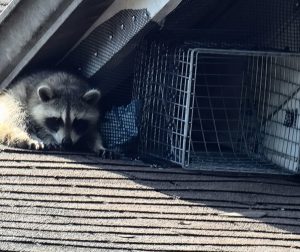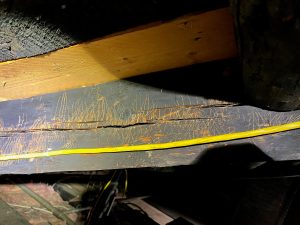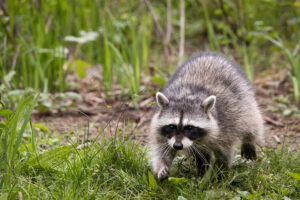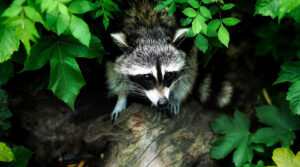The average raccoon lifespan is about five years, though many kits die before reaching adulthood. The longest surviving wild raccoon lived for 16 years, while a captive raccoon’s lifespan can last as long as 21.
Like many animals, raccoons in captivity generally live much longer than those living in the wild—wild raccoons usually live around two to three years, while those in captivity can live significantly longer.
This is because animals in captivity are kept safe from predators, well fed, and receive medical care. On the other hand, wild raccoons often succumb to hunting, trapping, automobiles, and dogs well before the age of five—things raccoons in captivity need not worry about.
When Do Raccoons Give Birth?
Raccoons are very common throughout the U.S. and have adapted to human civilization with great success. Though these animals only mate once a year, females give birth to between three and seven offspring. Generally born in late spring, the baby raccoons live with their mothers for almost a year before venturing out on their own.
Raccoons usually give birth between March and April, but that can vary based on location. In North Carolina, raccoon breeding season is February through March in the mountains and through April in the Piedmont and Coastal Plain. In South Carolina, breeding season starts in February. Texas breeding season usually happens in summer.
Young raccoons are at high risk of starvation because they have little time to build up fat reserves before winter. Babies rely on their mothers to find safe shelters, and female raccoons frequently choose chimneys as denning sites. This leads to obvious conflict with humans.
Attics share similar qualities as a natural denning site for raccoons. If a female raccoon has created a den in your attic to give birth, it could be a while before the raccoons move out on their own accord.
What Should I Do if a Raccoon Family is in the Attic?
Mother raccoons are incredibly protective of their young—they will go as far as ripping siding and shingles off homes if they are separated, so it’s important to make sure they stay together. That said, there are a number of things you can do to send the entire family unit on its way.
Raccoons can be responsive to “humane harassment” techniques that involve light, sound, or smell. Raccoon eviction fluid only works if young are present. It only works sometimes.
Aim a flashlight into where you think the raccoons are living. This will give the mother the impression that the site is not safe, prompting her to relocate. Turn off the light periodically so that the mother will feel safe enough to re-enter the area to retrieve her young.
A similar tactic can be used with a radio—turn a radio on to an all-talk station (interestingly, raccoons tolerate music more than human voices) and place it near the entrance to the raccoon den. This will annoy the mother enough to grab the juveniles and leave.
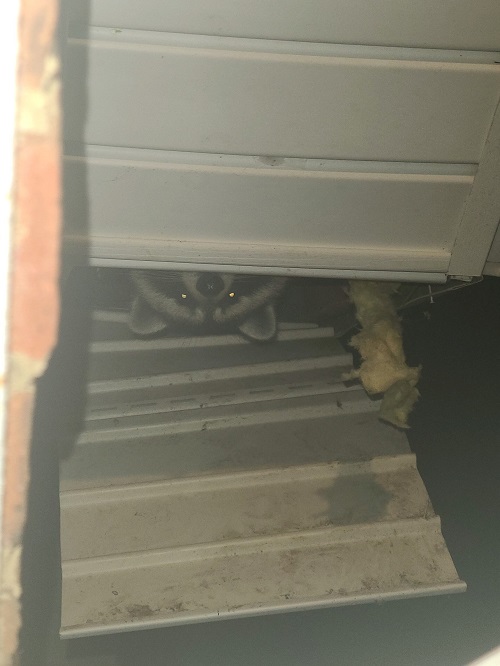
This is not a long term solution!
Raccoons will quickly ignore the lights and noises. If the mother raccoon leaves with the juveniles, you need to quickly repair the raccoon entry hole.
Do not attempt to repair a raccoon hole if young are still present. The mother will do everything in her power to reunite with her litter.
What if There is a Raccoon Kit in My Yard?
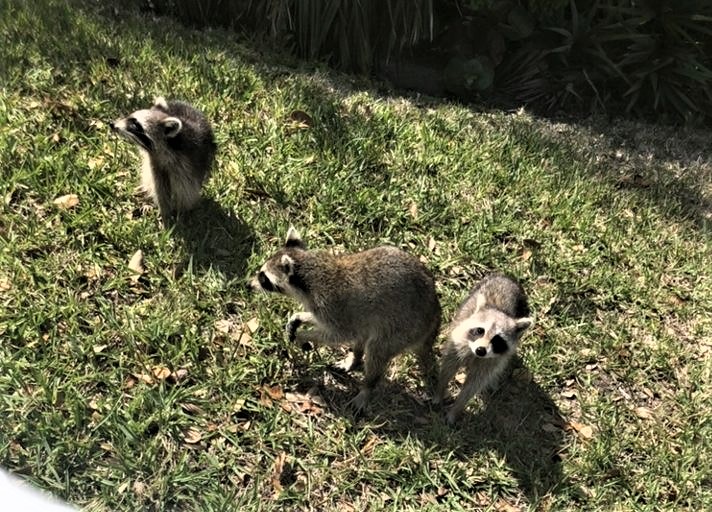
It’s important to remember that a mother raccoon is always the best suited to take care of her young. If you find a baby raccoon in your yard, and it doesn’t appear injured or malnourished, it’s best to leave it be, as the mother will likely retrieve it eventually. If the baby appears injured or malnourished, then it’s best to call a professional service, as only professionals should handle wildlife directly.
What is the Best Way to Get Rid of Raccoon Families?
While the above DIY suggestions might work in getting rid of raccoons, cage traps are the most effective method of raccoon removal. To ensure the most humane raccoon removal, trust the professionals at Trutech.
Wild animals can be unpredictable and carry diseases. Raccoons especially can introduce pathogens to you and your family if you aren’t careful. Raccoon latrine sites can harbor parasites like raccoon roundworm.
At Trutech Wildlife, we have the knowledge and resources to send these masked mammals on their way as quickly—and compassionately—as possible.
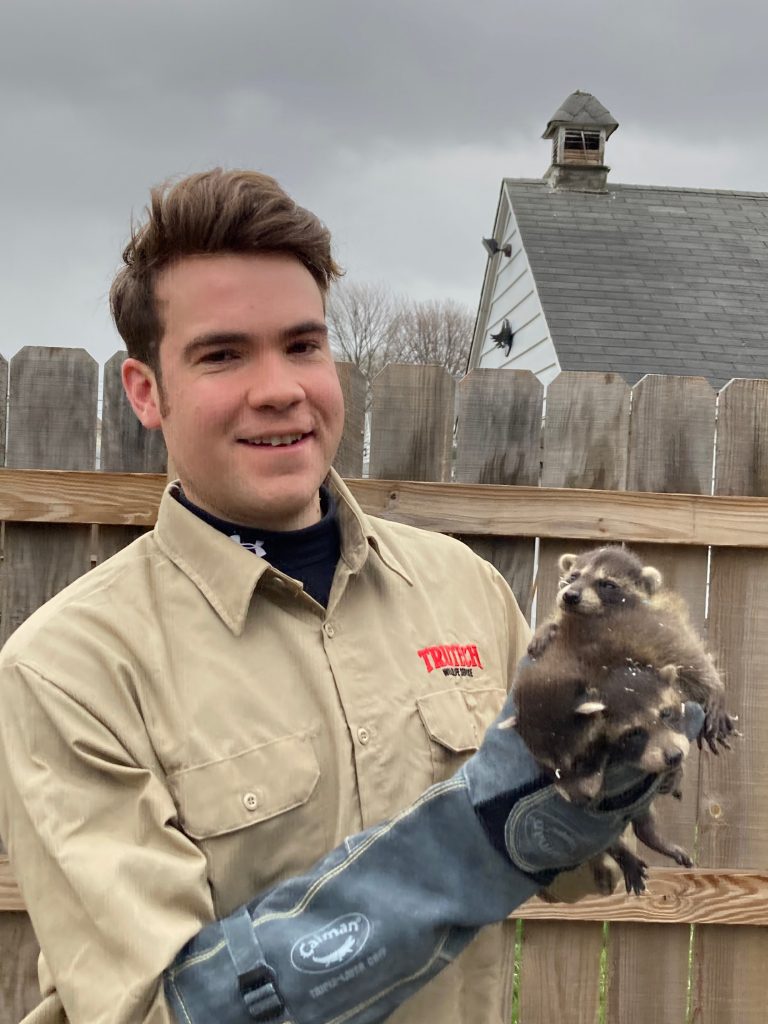
Call Trutech In to Get Raccoons Out



